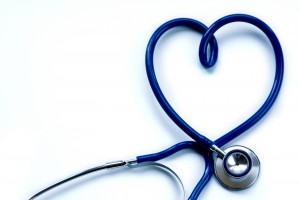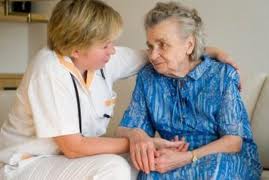Five Tips for Providing Effective Patient Education

Educating patients is a crucial and multifaceted aspect of nursing care that profoundly influences their overall well-being. Whether a nurse is guiding a new mother through the delicate process of bathing a newborn or providing essential instructions to an adult managing a chronic condition, the quality of the nurse’s guidance and support plays a pivotal role in determining the individual’s success on their health journey. Here, we delve into comprehensive tips for nurses when assisting patients in coping with their health challenges.
Take Advantage of Technology
Take full advantage of the remarkable technological advancements that have revolutionized patient education. In modern healthcare settings, many facilities offer accessible educational resources that can be easily customized and printed out. Furthermore, the vast array of resources available on the internet serves as a valuable supplement to these materials. Leveraging these technological tools eliminates the need to recreate educational content for each patient, streamlining the process and saving valuable time and effort.

Struggling to meet your deadline?
Get your assignment on Five Tips for Providing Effective Patient Education done by certified MDs and PhDs in the USA. ORDER NOW!
Ensuring that the educational materials are tailored to the individualized needs of patients is of utmost importance. Rather than simply handing patients a stack of papers to read, nurses should actively engage with them, reviewing the materials together to confirm comprehension. It is essential to promptly address any questions that may arise and provide resources in languages that patients are comfortable with and can readily understand.
Determine the Patient’s Learning Style
Recognizing that patients have diverse learning styles is a fundamental aspect of effective education. While similar information can be conveyed through various techniques, using different modalities reinforces the learning process. Nurses should assess whether patients prefer visual aids, such as watching a DVD, written materials, or hands-on learning experiences. A hands-on approach, where patients actively participate in procedures under the guidance of a nurse, is often the most effective method. Additionally, nurses should assess patients’ reading abilities and comprehension levels, understanding that intelligence does not always correlate with the capacity to absorb and apply information.
Stimulate Your Patient’s Interest
To enhance the effectiveness of education, nurses must ensure that patients understand the personal relevance and benefits of the information provided. Adult learners, in particular, often seek immediate gratification and need to see the direct impact of the knowledge on their well-being. Establishing rapport, asking pertinent questions, and addressing specific patient concerns are crucial steps in this process. For instance, tailoring the level of detail provided to match individual preferences—whether patients desire comprehensive information or a simple checklist—can significantly enhance engagement.
Consider Your Patient’s Limitations and Strengths
 In delivering patient education, nurses should consider any physical, mental, or emotional impairments that might impact the patient’s ability to learn. Adapting materials for those with hearing impairments by incorporating visual aids and hands-on methods, instead of solely relying on verbal instruction, is crucial. Additionally, nurses should always confirm patients’ understanding and be attentive to factors such as fatigue and the emotional impact of receiving a critical diagnosis.
In delivering patient education, nurses should consider any physical, mental, or emotional impairments that might impact the patient’s ability to learn. Adapting materials for those with hearing impairments by incorporating visual aids and hands-on methods, instead of solely relying on verbal instruction, is crucial. Additionally, nurses should always confirm patients’ understanding and be attentive to factors such as fatigue and the emotional impact of receiving a critical diagnosis.
Involve Family Members for Holistic Support
Recognizing the integral role that families play in healthcare management, nurses should actively involve family members in the patient education process. In many cases, family members become the primary caregivers and educators. For example, when providing guidance to families of geriatric patients struggling with nutrition, emphasizing the social aspects of eating can be essential. It goes beyond merely providing a healthy meal; the social environment and the people with whom the patient shares their meals directly influence their food consumption.
Teaching as a Challenging yet Rewarding Aspect of Nursing Care
Educating patients and their families is undeniably one of the most challenging yet profoundly rewarding aspects of providing nursing care. The quality of instruction significantly influences patient outcomes, making it a creative and intuitive facet of nursing practice. These tips serve as a comprehensive guide for nurses, offering a solid foundation for effective patient education. Sharing individual insights and experiences with fellow healthcare professionals contributes to collective learning and continual improvement within the nursing community.

Dont wait until the last minute.
Provide your requirements and let our native nursing writers deliver your assignments ASAP.
